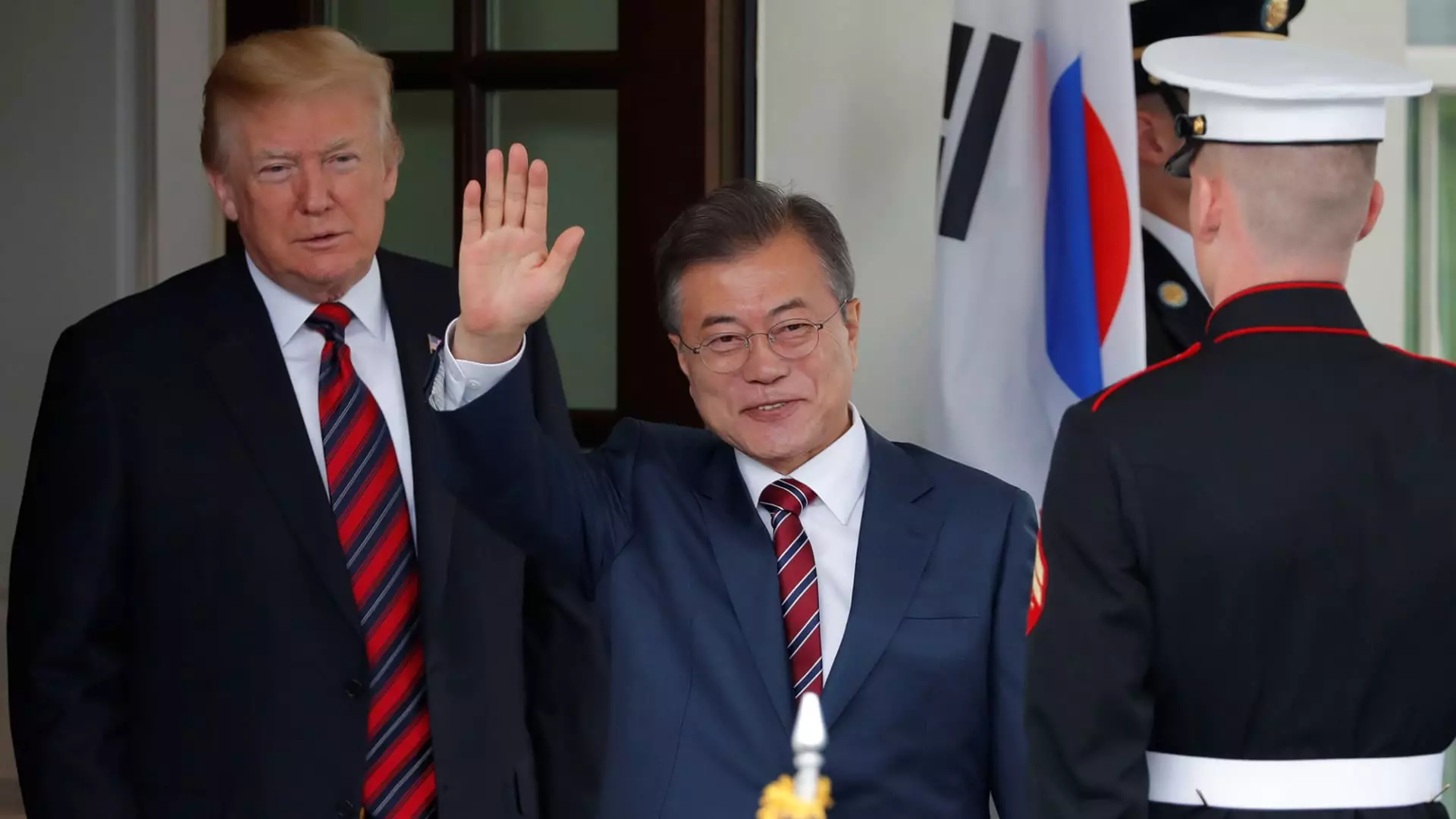The ongoing discourse surrounding tariffs has significant implications for the U.S. auto industry, particularly concerning its trade relationships with Japan and South Korea. With President Donald Trump considering the possibility of imposing additional tariffs, especially on vehicles imported from these countries, stakeholders within the automotive sector are bracing for potential upheaval. The ramifications could be far-reaching, particularly given the substantial role these nations play in the U.S. vehicle market.
In 2024, South Korea and Japan combined accounted for approximately 16.8% of vehicle sales in the United States, with South Korea leading the surge as a vehicle exporter. Notably, South Korea has overtaken Japan in recent years, representing around 8.6% of all vehicles sold in the U.S., while Japan contributed 8.2%. This dynamic marks a critical shift in the competitive landscape as these East Asian nations vie for market share in the U.S., primarily fueled by their tariff conditions, or lack thereof, when exporting to the U.S. The absence of duties on South Korean imports is starkly contrasted with the looming 25% tariffs that may apply to Canadian and Mexican automakers, which positions South Korean manufacturers favorably as they continue to dominate particular segments of the market.
Automakers such as Hyundai and General Motors are heavily reliant on the tariff-free access South Korea offers. In fact, the growing trend in South Korean auto exports has significant implications for major U.S. players. The data indicates that Hyundai has become the largest exporter of vehicles to the U.S., overtaking General Motors and Kia, a Hyundai subsidiary. This underscores the high stakes as tariffs could jeopardize a competitive advantage that these automakers presently enjoy.
Tariffs on imports function as a tax, resulting in elevated costs. Industry experts emphasize that these additional charges might be passed down to consumers, leading to increased vehicle prices and decreased demand, ultimately affecting sales. Current tariffs impose a 2.5% levy on Japanese imports, but South Korean vehicles enjoy favorable conditions, with zero tariffs that have remained unchanged despite previous renegotiations between the countries.
The contrasting situations of Japan and South Korea in the face of potential tariff hikes may alter competitive dynamics. While Japan has seen a gradual decline in its share of U.S. auto sales in recent years, South Korea has enjoyed a remarkable growth trajectory, with sales escalating from about 845,000 vehicles in 2019 to 1.37 million in 2024. This pattern raises questions about how tariffs will influence future growth for both countries. Should tariffs emerge, it could provoke a serious reevaluation of strategies by both Japanese and South Korean manufacturers aiming to maintain their foothold in the U.S. market.
Broader Implications for the Automotive Ecosystem
The automotive industry is seen as a bastion of free trade, and experts predict that while tariffs could necessitate an adjustment period, the industry has the resilience to navigate such challenges. Terence Lau, an academic and former trade expert at Ford, outlines that although the industry has a capacity for adaptation, any dramatic changes in tariffs demand a period of recalibration.
Former Ford CEO Jim Farley recently expressed concern over selective tariff implementation, arguing that a comprehensive approach should be adopted to ensure fairness across the industry. He highlighted that numerous vehicles are imported without facing the additional tariffs that could apply to some countries, which raises questions about the competitive equity in the market.
In light of President Trump’s recent discussions about ‘reciprocal tariffs,’ the potential for increasing tariffs could reshape the automotive export landscape, especially if manufacturers are forced to reassess their supply chains and pricing structures. As companies adapt, the importance of careful consideration regarding which nations and imports are targeted becomes essential for a balanced approach in the automotive trade equation.
The automotive industry’s future is poised on the edge of uncertainty as potential tariffs loom large over key international relationships. With substantial stakes involved for South Korean and Japanese manufacturers, the implications of tariff decisions could trigger a wave of changes across the industry. Stakeholders must remain vigilant as evolving trade policies have the potential to disrupt market dynamics profoundly. The question remains: how will the auto industry respond? As regulations shift, the need for strategic adaptability will be more crucial than ever in maintaining successful operations within the competitive global market.

